Frege and the Pure Business of being True etc

Interview by Richard Marshall

' One reason I don’t see Frege as a philosopher of language is that he explicitly says that is not his topic. It seems to me that for a long time now (probably since the Vienna Circle, but I suspect much longer than that) philosophers have tended to see too much in common between language and logic, as if language (if properly done) would just be a sort of less topic-neutral language. This, I think, is responsible for huge misperceptions as to the shape of philosophical problems.'
'The laws of truth are laws which hold solely by virtue of what being true is as such. That’s what it means. That serves as a guide to a search for the laws: to get to the law-like behaviour of being true, you have to strip away a log of variables which are not part of what being true is as such. (So far, there is a parallel with the laws of mechanics: laws of motion, independent of, say, colour and shape. Frege goes through a series of abstractions (separating-outs) to get at this. One important point is this: the laws of thought govern logical forms, and primarily the phenomenon of truth-transmission (by virtue of form alone).'
' Compare McDowell and Frege. In 1994 McDowell said: The only rational (i.e., justifying) relations we can recognise as such are relations between concepts, such as entailment. In 1882 Frege said: there is a tremendous fundamental difference between, on the one hand, relations between concepts, and on the other hand, relations between objects and concepts. One thing this means is that there is an important sense in which relations between concepts are logic’s business, but relations between objects and concepts (recall instancing ) are not.'
'What’s parochial (insofar as thought is objective) is what choices a given species, or group, or whatever, makes from within this domain. Having made the choices, there are objective facts as to which of these ways things are, or when something would be any one of these ways. It may be a very complex story what these facts depend on. But there are non-parochial standards of objectivity which are either met or not by the applications made of the concepts chosen in any particular case.'

Charles Travis works on a set of problems about thought, representation and experience, spanning parts of philosophy of perception, of psychology, of language, of logic, and epistemology. He has been most influenced by, among the recent dead, Wittgenstein, Austin and Hilary Putnam; and, among the living, , John McDowell and Noam Chomsky. Here he discusses why Frege isn't a philosopher of language, Frege and Russell on the structure of thought, Frege's response to Kant and the relationship between logic and mathematics, the laws of truth, Fodor's reductionist prejudice, Frege and rational beings, objectivity and the parochial, unlearnable languages and Davidson, separating being true from holding true, a bad question, the place of rationality in representation, the role of decomposition in understanding, comparing Frege and McDowell on thinking and the parochial, the status of the laws of logic, Wittgenstein's 'mesh', on whether the laws of logic are held hostage by parochialism plus Leibniz's influence, more on Frege and Kant, Chomsky and McDowell, and some Fregean aspects of Wittgenstein's Philosophical Investigations.
3:16: What made you become a philosopher?
Charles Travis: There’s actually an object lesson here that’s worth bringing out (the merits of the American version of a university). I started at (U.C.) Berkeley when I was 16. I came from a good high school (Ventura, California), and my parents were cultured, highly educated people. But there was a lot I didn’t know about university subjects, and nothing whatever about philosophy.
I first enrolled in physics, but didn’t like it, probably for bad reasons, so by my second semester I was purely in maths. But of course, it being an American university, I had not just the opportunity, but actually the obligation to try out different things (in part breadth requirements). I took the opportunity, even taking a course in music (composition), and various other things. Somewhere in my third year I decided that I didn’t want a career in mathematics—again not necessarily for good reasons. So in the last semester of my third year I tried out philosophy. I just took to it immediately. In my fourth year I took almost exclusively philosophy courses (there was one botany course for a breadth requirement) and I was able to graduate with a degree in philosophy, and a good enough one to get into graduate school. (As it happened, I went to UCLA.)
I wouldn’t have predicted in advance that philosophy was the thing for me, and in a different system I might never have had the chance to find out. But I did have the chance, and this is what happened. (In that last year in Berkeley, I had a few professors who have influenced me ever since, including William Craig for logic, Hans Herzberger, who introduced me to Chomsky and Putnam (the works, I mean), and Thompson Clarke, who I think wouldn’t make it as a university professor today (he was not especially student-friendly), but simply gave brilliant lectures (mostly on epistemology, a bit ahead of his time there). Short answer: I was introduced to philosophy, relatively late in the game, and it grabbed me.
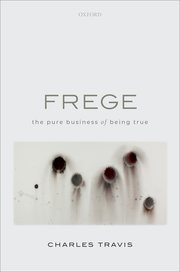
3:16: Your new book is about Frege so let’s start there and then work backwards into your other works. You now see Frege in terms of post-1929 Wittgenstein and much further from the early Wittgenstein and Russell – which is where you had him situated before. This shift includes three different ideas about Frege. Firstly, you no longer see him as a philosopher of language and secondly, you see Frege’s distinction between ‘being true’ and ‘holding true’ as leading to the consequence that he isn’t a language theorist of any sort. So can you explain for us the distinction and why it changes what we need to understand about Frege’s philosophical project?
CT: One reason I don’t see Frege as a philosopher of language is that he explicitly says that is not his topic. It seems to me that for a long time now (probably since the Vienna Circle, but I suspect much longer than that) philosophers have tended to see too much in common between language and logic, as if language (if properly done) would just be a sort of less topic-neutral language. This, I think, is responsible for huge misperceptions as to the shape of philosophical problems. But that can’t be shown quickly. (I’m working on it now.) To go further, we have to trace Frege’s path to the discovery of the laws of his most central topic, logic. His first and most significant step is to divorce the business of being true, as he sees it, from that of holding true. The first is not a thinker’s business. (Thinkers aren’t true, at least in the sense in which truth is a phenomenon which arises with a particular notion of representing, representing-as ). The second, of course, is. And language is.
Language is a device we exploit for thought-expression. (Other creatures, cats, for instance, have other ways, though highly limited ones.) But thought-expression is ( inter alia ) one form of holding true. Right away we see that this is not logic’s business. The search for logic is the search for the law-governed behaviour in the phenomenon of being true. One needs to look in the right place for this. Which requires several more steps after Frege’s initial step of separating out being true from holding true. One of the fruits of taking Frege’s path is that at the end, when we have come to the laws of being true (as it turns out, laws governing forms there are for thoughts (truth-or-falsehoods) to take), we may then (and only then) approach the issue of reintegrating thinkers into engagement with that business. (What we have abstracted to is something independent of them, now it is going to be made to relate to them in given ways, for example, in taking such-and-such to be true (or so). So much philosophy goes astray by approaching such phenomena in the wrong way. That, and why, it is wrong stands out very clearly once we make Frege’s initial separation of issues. I don’t claim that this is precisely why he decided to extract the one thing from the other. The answer to that question is going to parallel more closely the answer to the question, e.g., why Newton abstracted from colours and shapes in seeking the basic laws of motion. But a better way of doing philosophy turns out to be part of the bargain as well.
A thought (I mean Frege’s Gedanke ) represents things (in general) as being a certain way there is for things to be. I pick this case as basic, as does Frege, because it does not call for completion, that is, it is true, or false, outright , as opposed to what represents a thing as, for example, a fluid, which thus so far may be true of some things, not of others. It follows that every thought ( Gedanke ) represents the same thing as some way or other. Different Gedanken differ only in what way that is. One thing about representing-as, as above, is that the whole phenomenon of being true or false arises precisely with it. The crucial point is that representing-as is non-factive, that is, room is left open in this phenomenon for representing things as they are not. Otherwise put, it is not a requirement on representing-as as such that things are as represented. Contrast the factive case: Those graffiti on the courthouse wall may represent the anger felt by one segment of the population: they may do that, but only if anger is felt by the (or some) relevant segment. Another thing is already contained in that ‘for’ in ‘way for things to be’, thus a way-to-be which doesn’t depend essentially on things being as they are for its so being (or for things so being). At this point we get generality: When would there be a case of something so being? And when would there not be such a case? If there is one answer to either of these questions, there are indefinitely many. The role of the way in question is to identify when there would be, when not. I say that what instances (is a case of) such a generality, a particular case, itself has no generality.
I think that’s right. But one might think of instancing a given generality as being, in the end, a role rather than a category. So what plays the role of instancer on one way of carving things up may be what would not play that role on another. Perhaps this is not so, though, depending on how one fixes the notion particular case . Why is it so important? Maybe for lots of reasons. But one reason why I stress the point has to do with distinguishing perceptual awareness (and its objects) from thought. A generality can’t be an object of perceptual awareness. You can’t see a generality (e.g.). One problem that Frege had in his time (or perceived himself as having) is that there were philosophers then (and I think now, and in fact there’s a whole empiricist tradition) who think that it’s only the spatiotemporal that’s ‘really’ real, so if we’re going to talk about anything non-spatiotemporal, if it’s anything at all it must reduce to the spatiotemporal. So, e.g., the British empiricists present us with a challenge (or range of them): to explain how one could arrive at a given concept (e.g., that of a Gedanke) given only as input experience of the spatiotemporal? Frege wants to reject any such challenge. He sees himself under no obligation to, as it were, justify abstract objects. (I’m with him on that one.) So it’s worth pointing out, as he does, that if this idea about the spatiotemporal were true, there would be no such thing as thought (or ideas, or truth).
3:16: The third big idea is the distinction between what represents something as something, on the one hand, and that which is thus represented as something, on the other and the match between this distinction and another one, between ‘what is, or possesses generality, by just which it is the thing it is’, on the one hand, and ‘what is devoid of generality’ on the other. Can you sketch for us what this is all about, and again, why is it so important?
CT: I think Frege and Russell had two opposing views of the structure of thought, the two most important competing pictures in analytic philosophy in the last century, and still today. Sociologically speaking, I think Russell is ahead on points. The concerns which lie behind his picture (and which emerge in one way in his notion of an ‘objective proposition’ are really reductionist, along with an unnecessary fear of idealism. (I’m not suggesting that maybe we should be idealist). Whereas Frege’s attitude on such points comes out in one way in his remark (in the preface to Grundgesetze 1) that he can find nothing in the notion object which requires objects to have spatiotemporal existence. Frege rejects empiricism from the start in a way in which Russell does not. I think those features of Russell which I just mentioned fit more easily with the predilections of the majority of mainline analytic philosophers today. Which I think is unfortunate, but nothing to do about it except to keep unfolding the alternative, which is Frege.
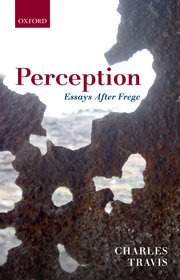
3:16: Frege sets out a picture of what there is to think true or not. So what does he think there is to think true?
CT: I can think of nothing to say about that question except this: What is true, or if not false, is some (sufficiently determinate) representing of the way things are as some way there is for this to be. As to what such ways there are for things to be, philosophy has nothing to say about this except in special cases. I don’t think he thinks there are any general a priori bounds on what, in particular, is either true or false (so can be thought true) except generalities like one I just stated. Suppose you think that it’s possible to think, truly , that Bad Kleinen is beautiful, and I think not (it’s just something one may be inclined to say). To see which of us is right, we just need to test whether we in fact know of enough particular cases (ways things might be) which ones would be cases of a beautiful Bad Kleinen, which not. In the end, as Wittgenstein suggests in the Investigations , it is to an extent up to us to decide what we are going to treat as true or false, what not. Anyway, if you are Fregean, you have principled reasons for denying that such things are up to logic to decide (again, except in special cases, such as that one half of Frege’s basic law linking predicates and extensions).
3:16: He wants to prove arithmetic is logic. Why was this so important to his project, did he succeed and why do you argue that his missteps all work to the advantage of his project as he conceived it?
CT: Well, part of the reason he wanted to prove arithmetic to be logic is as a response to Kant. Kant thought arithmetic was synthetic a priori . And that went along with his view that (essentially) logic is sterile, a closed subject in his time, and virtually empty of content. Entailing arithmetic would be having content enough to counter Kant with. And of course, this aside there are reasons to expect arithmetic to be logic, at least if the laws of identity are logical laws. The truth or falsehood of an identity corresponds to there being one thing or two. It thus presupposes the idea of counting, which it is arithmetic’s task to unfold in full. He had a particular conception of how to go about proving this, however, which seems to have been a bit unfortunate. The standard reason is, in effect, that he didn’t anticipate some of the problems of set theory. But there are a number of others. For one thing, to prove that arithmetic was logic, Frege first had to develop the topic logic , by providing a logic. And it seems to me his idea of what he did provide here diverges from what his logic actually was. This is a subject which it would take considerable space to expand. And my own view of it is a bit idiosyncratic I think.
But let me say this. From 1879 (the year of the book Begriffsschrift) through the first half of the 1880s Frege saw himself as opposed to Boole. He saw Boole to be more or less right (modulo a bit) in what he actually did, but wrong as to what he ought to be doing because, to speak very roughly, what Boole gave us was just some mathematics by which we could construct truth values from other values. Whereas, Frege then held, logic’s topic should be thoughts ( Gedanken ), that is, truth-or-falsehoods. So it is these that Frege’s laws of logic really ought to govern. Fair enough as far as that goes. But sometime around the end of the 1880s, Frege had a change of view. We don’t have a completely clear picture of what happened. But in any event, when it came to the logic of Grundgesetze , he seems to have moved back a good deal in Boole’s direction. That is, au pied de la lettre, at least, the logic of Grundgesetze does not treat (directly) of thoughts. This is because of something Frege came to think—not all that unreasonably— which is that logic’s laws apply ‘in first instance’, as he says, ‘at the level of Bedeutung ’. It is not perfectly clear what he meant Bedeutung to be, but anyway something attached to, but external to, the representing itself (to the thought and proper thought-parts). So what logic eventually turned out to be for him was not quite as advertised. And this matters because if logic really is just mathematics of the kind which fits at this ‘level of Bedeutung ’, well, if you can get some mathematics (arithmetic) from other mathematics (some elementary theory of functions, say) that is not such an interesting result. At least not to the philosopher. (It’s surprising that there is so much insight in Frege, but at the same time such a blind spot. (For all of which I do still count myself as Fregean.))
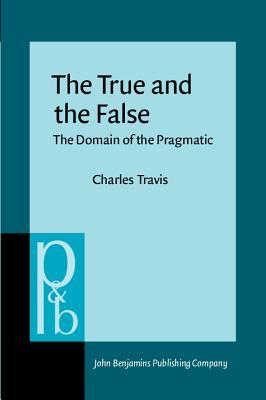
3:16: What does he mean when he says that the meaning of the word ‘true’ is unfolded in the laws of truth, what is assertive force and how is it linked to the notion ‘true’?
CT: The laws of truth are laws which hold solely by virtue of what being true is as such. That’s what it means. That serves as a guide to a search for the laws: to get to the law-like behaviour of being true, you have to strip away a log of variables which are not part of what being true is as such. (So far, there is a parallel with the laws of mechanics: laws of motion, independent of, say, colour and shape. Frege goes through a series of abstractions (separating-outs) to get at this. One important point is this: the laws of thought govern logical forms, and primarily the phenomenon of truth-transmission (by virtue of form alone). Suppose you start with a thought (a ‘judgeable content’), e.g., the thought that Sid drinks beer through a straw. To get to a logical form, and therefore that which unfolds the content of true , you have to, as I put it, redact that thought by erasing all of its features by which it is distinguished from any other thought. (I simplify slightly here.) Suppose we turn attention to the phenomena he prescinds from, e.g., being, or not, a case of someone drinking through a straw (satisfying a concept). Well, there are certainly facts about this. But Frege wagers, I think correctly, that this is not going to be territory rich with law-like behaviour. This point, in itself innocuous, fools lots of philosophers to expect more from logic than they’re going to get.
Assertive force is commitment. In asserting something, one presents himself as, first of all, an authority as to whether it is true, and second, in possession of proof (in some sense) that it is true. He makes an offer to transmit his authority (as to whether) to a hearer: If his commitment is genuine, and his credentials are really good, then, recognising this, you come to know the truth in question too. In a proof (entirely by truth-transmission) one begins with thoughts to which assertive force attaches (they are to be taken as true) and continues to more things to which assertive force is to be attached (because the move to them is truth-preserving). At the end you arrive at something that is to be accepted as true, something which merits assertive force. (And which is to be treated accordingly). And this, in one way, shows the point of the notion true .
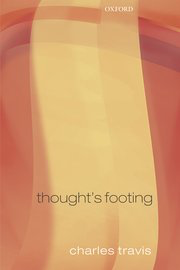
3:16: Fodor said that ‘If aboutness is real, it must be really something else.’ Frege disagreed didn’t he – so what is the heart of this disagreement and why does Frege disagree in terms of ‘indefinability?
CT: Fodor had a way with words. (He was also genuinely funny.) This slogan is an expression of a reductionist prejudice which is present in much of philosophy within (as Emmanuel Macron named it) the ‘Anglosphere’, but which was also rife among Frege’s contemporaries, so-called psychologistic philosophers ; Frege is strongly anti-reductionist. He makes remarks such as: ‘I can find nothing in the notion of an object which requires an object to be something spatiotemporal.’ (He doesn’t use that last word. But this is what he means.) There is an object in the sense of concern to logic, wherever there are sufficient answers to questions whether something is it (in some slice of its career). In particular, truth, meaning, etc, do not reduce to something else. For Frege, there is no reason to expect these notions, or any notion, to be eliminable in favour of something to which they reduce. (Of course, occasionally one can run into a genuine reduction of something. But there is no demand for this to be so.) Here more than anywhere we can see Frege as a precursor of (later) Wittgenstein.
3:16: Why can’t empiricism answer the problem parochialism sets for us?
CT: The empiricist challenge. One way to look at that challenge is, I think, this: The 17 th century (the precursor to Locke and company) was extraordinarily bloody and brutal. And one reason it was is that a certain putative method of coming by knowledge came into the mode (as it is doing today in America, and to an extent in the UK too). I call it the ‘flashed-upon’ method, as when you’re passing by a small restaurant and it just flashes on you that there are paedophiles in the cellar. You just know. As an antidote to that, the empiricists insisted that when you claim to know something, you are obliged to provide an account of how such could have been known on the basis solely of perceptual experience (or perhaps experience more widely). Or at least there must be an existence proof: there is some such way of coming to know.) So there is a certain kind of stress on enabling explanations.
Kant accepts this aspect of empiricism. He just thinks there’s a lot more to be said as to what an enabling explanation might be. E.g., there are preconditions for having sensory experience. And this privileging of enabling over accounts of what it is that there is to be enabled, is still common place. Frege showed us how it could be fruitful to turn attention elsewhere. To put it very crudely, for the most part we (philosophers) can just leave enabling explanations to the psychologists. (This is too crude. But I’m trying to give a broad picture here.) What philosophers should direct their attention to are such things as the general structure of thought—what there is to engage in, or recognise. So Frege shows us, by example at least, how to go beyond Kant—what the next step is, or should be. He’s not generally recognised as doing this. But he is doing it. It’s still such a radical thing to think as Frege did that it’s apt to generate blank stares from well-known, but more conventional, philosophers. (Convention here beginning, as I said, in the 17 th century, and in a way for which one may have some sympathy.)
3:16: Is Frege a Cartesian in some sense, seeing logic as investigating the rational being, rather than some species of rational being? Can you unpack the issues of the limits of neutrality for us and how Frege dealt with them?
CT: Frege’s topics certainly concern ‘the rational being’, and in as topic-neutral way as he can manage, which, so long as the topic is logic, is close to purely topic-neutral (I think). Aside from this being an artefact of his choice of topics (notably, arithmetic), one could see it as maintaining distance both from his psychologistic colleagues, such as Benno Erdmann, and from such empiricist notables as Mill. But I think you should be careful about the term ‘Cartesian’. In a relatively early work (1637), Descartes made the rational being as opposed to the human being a central topic. (Of course, what he wanted to explain was what it is for human beings to be rational beings). But when you use the name ‘Descartes’, that isn’t the work people usually think of.
Neutrality can be topic-neutrality, something intrinsic to logic as such, and at least part of mathematics—maybe a great deal of it depending on your philosophy of same—and species-neutrality, including species-specificity. Bracketing logic for a moment, I think the possibility of species-specificity shows up very soon as soon as you move away from logic. And it has been a perennial problem for philosophy how to reconcile this with the objectivity of thought (or, reversing order, how to allow it without falling into idealism). That’s one of the problems I’m working on now, and I think it’s also a problem Hilary Putnam addressed usefully in the days when he was what he called an internal realist.
Another way to put it: Frege sometimes spoke of two fundamentally different kinds of relations. One kind is a kind in which objects, in logic’s sense (not just spatiotemporal) participated, notably ones in which objects were related to ‘concepts’. And the other kind is between concepts. Logic is concerned with relations between concepts, but independent of considerations of what concepts. Thus its topic is, in the end, logical forms, and here, even if there were species specificity involved it wouldn’t be of a very interesting kind. Species-specificity becomes a pressing issue when we talk about relations between objects and concepts, particularly what I call ‘truth-yielding’ ones, that is, ones in which the first term of the relation doesn’t have any truth to transmit, such as, say, an oak tree or a truffle, but the second term is a truth-or-falsehood, e.g., the thought that there’s an oak tree in that field. So, why should it be precisely being an oak tree , with all that we understand as to what it would be for something to be that , rather than, so to speak, a ‘shmoak tree’? (I can’t explain that concept to you because we’re the wrong species.) Well, perhaps that’s not a well-formed question, but if not, it’s up to philosophy to say why not.
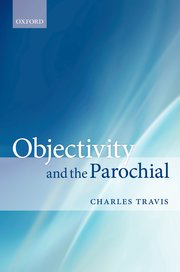
3:16: Am I right to think that this is Frege answering issues you raised earlier regarding objectivity and the parochial, the one Kant raised when he raised the problem about how we get to think rightly about the world if we are condemned to think about the world in a certain fixed (parochial) way – which might mean that we’re not really thinking, and that what we’re doing would prevent us from seeing that? Is Frege saying that that’s not the problem?
CT: I don’t like to talk much about Kant because if I asserted baldly that Kant lived in Königsberg, a couple of dozen Kant scholars would start jumping up and down on me for saying anything so naive. Also, there’s the aphorism of Karl Menger (one of the Vienna circle): “If people are going to talk about Kant, someone should translate him into German.” But in the context of this interview, I’ll let my (non-existent) hair down a little. I think I’ve already talked, somewhere above, about the empiricist challenge, and why. Around the turn of the 18th century, it really was time to impose some sort of standard on knowledge claims. (As it is now, outside philosophy.) The standard was: “OK. Show me how someone could know such a thing, deriving proof merely from the objects of perception itself.” (Contingently, perhaps, this went along with a dose of Pyrrhonian scepticism.) Kant’s response to this amounts to this: ‘Before I can show you how anyone could derive proof of anything from experience, I’ll have to go into the question what would have to be so for anyone to be enjoying proof-rich experience at all. When I show you that, you will see that at that stage we are already committed to the truth of various thoughts. And that’s why you haven’t put a legitimate limit onto knowledge.”
Not much help to a 17 th century enthusiast, thankfully. While still legitimising a large part of the empiricist challenge, namely, the call for enabling explanations. It’s just this that Frege opposes. (And you might ask what he puts in its place—a good question, not unanswerable. Here you might find a connection between Frege and issues of idealism vs realism.) Now, Kant looks like he’s saying: ‘We think rightly about the world (sometimes, at least) because we are responsible for the existence of the things we think about, thus we (not as individuals, but as something akin to a species) define what it would be for thinking to be right. Here I think Kant might be almost on the right track. Though it’s not obvious how. And again, before the mavens start jumping up and down on me again, I don’t think Kant would have put it this way, at least insofar as ‘we’ means ‘human being’. (One possible approach is to try to show that it is the rational being and not the human being who sets the standards here. But Kant had a tendency to inflate the realm of the rational being, for understandable reasons (for example, Gauss and Riemann hadn’t happened yet). Well, anyway, I’ve probably already let me hair down too much as far as Kant is concerned. I do think Frege would say the above is not the problem in that if there is a problem it arises only after how thought is enabled is separated entirely from how it is justified (or, a term he would prefer, grounded ).
Frege would have a simple answer to this one. It can’t because aetiology is not justification. What shows, e.g., that, in fact, there is no largest prime is a proof that there is no largest prime, not any account of how we are able, or come, to think of there being primes or sizes, or anything else.
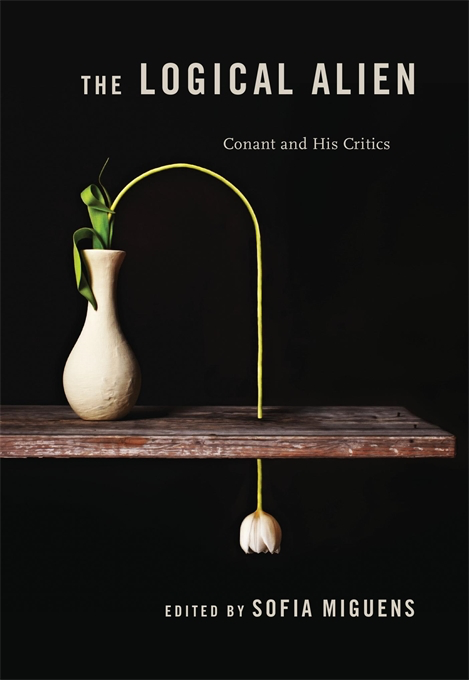
3:16: One way of approaching the parochial is to argue that even if we are furnished with parochial means, what these means produced wouldn’t be parochial – so the threat of thoughts being pseudo-thoughts would be impossible. Is this any good as an approach ( I think you say Davidson’s work argues for something like this)?
CT: I think when you mention Davidson, you’re thinking of something I said in chapter 10 of the Frege book, and also in an introduction to the book, The Logical Alien , and which I’m still working on. Imagine that we encounter a martian civilisation. And suppose we find their languages unlearnable by us. (I argue for my right to put it this way.) Still, obviously, we are dealing with intelligence up to the standard of rational beings. (Most of what I’m going to say applies even if they’re not quite that. But I try to imagine their so being.) Then we would assign each of them (or any we encountered) relations to thoughts (i.e., thinkables), taking some to be true, some to be false, etc. And the thinkables we assigned them would be ones we can express, thus things we think (so), or deny, or etc. And if we did that we’d be perfectly correct in doing so. Anyone who denied that would be perpetrating a myth as to what it is to believe something, or etc. I’m not sure that Davidson thought anything like that. He could have, though. As for being parochial, whether the things these people (or we) believe are or are not parochial in some sense of the word is an issue that really doesn’t arise here (yet, anyway). I mean, it isn’t the problem. A martian thinker’s thought is just articulable into countable thoughts in many different ways. And that much of what I said in those two places I still believe.
3:16: What does Frege argue?
CT: When Frege starts off in search of laws of logic (or of being true,s since he thinks these laws are to be found in the phenomenon of being true) he has to separate out the topic—logic, equally being true—from various other things. The first and most famous is separating the business of being true from that of holding true. Holding true is a thinker’s business, but being true is not. (Thinkers are not true or false, or at least not truths or falsehoods). Then there are a few other steps, notably to the notion of a thought-decomposition (the same thought, he says may be decomposable in many different ways), but then one more big step. As Frege puts it at one point, there are two sorts of proof (or as he puts it, justification): There are proofs which consist in steps of deduction (transitions from one set of thoughts (or concepts) to another; and then there are ones which do not do that. Logic’s concern (at least insofar as that concern is with laws) is only with the first.
In the first kind of proof (logic’s concern) we are concerned only with relations between concepts , or what belongs to the conceptual. Ultimately, for him, this concern is going to be with forms for a thought to take (forms of decomposition) rather than with thoughts directly. Anyway, here what justifies steps from one such set to another is a way for concepts (or thoughts) to relate to one another, and this they do (in relevant cases) by sharing of form. The other sort of proof depends on relations between, as he would put it, objects and concepts. , in my terms, most notably the ‘instancing relation’ (where an object’s being as it is may be a case of something being what the concept is of being)
Now, such relations between objects and concepts are none of logic’s business (for Frege), and this is because they are not plausibly going to be law-governed in the ways that a transition from some thoughts to others may be. Suppose, for example, we are looking for a law which tells us when a given object would instance a given concept—say, the concept of being hungover, or being an umbrella. Well, what would a law tell us? Laws are intrinsically in the business of generalising. So it would tell us, e.g., that when a certain condition is satisfied by an object, it then falls under the concept to be an umbrella , and thereby yields a truth: that that object is an umbrella. But note that this merely postpones a problem, shifts its locus, and doesn’t—couldn’t—solve it. Because now the question arises when something would satisfy that suppose condition—itself a generality—and now we are back to square one (in a slightly different guise).
This important difference between the relation of truth-yielding (between an object and a concept) and a relation between some concepts and others—between in Frege’s terms, falling-under and being subordinated to—can be disguised if we express things in the right way. Because don’t we talk about a condition for falling under a concept? Sure we do. But you have to look closely at the background of such talk. We’re supposing that we already can recognise what satisfies the concept, what not.
So the remark, ‘I know an umbrella when I see one’ is more pregnant than (excuse a bad joke about French grammar) one didn’t think. This , of course, raises spectres of idealism: different species are liable to be designed to see different things when each recognises an object to fall under what it is calling an umbrella. (This isn’t a great way to put things, of course.) So such appearances of idealism (ultimately, to be an umbrella would be to be what we are prepared to call an umbrella) need to be worked away. I think that can be done, though I haven’t yet published anything good enough on that (I think). But I’m still working. But I”m not going to work it away in my answer to this question. I’m really recording a) what the issues are, and b) what a radical view I think Frege had as to what is law-governed and what is not (and how deep the remark is about the fundamental difference between, on the one hand, relations between concepts, on the other, relations between objects and concepts.
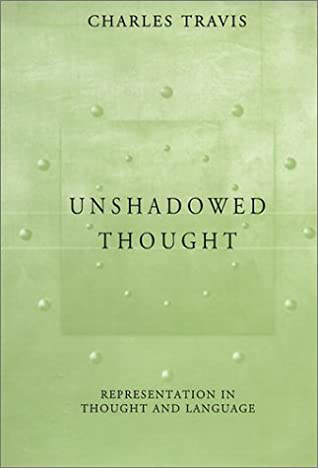
3:16: Why is it a bad question to ask what makes each bit of the conceptual to reach as it does – and how does this link to Wittgenstein’s fascination with how we can wish for something not even there yet?
CT: Insofar as this is a bad question, it’s because for that bit of the conceptual to be the bit it is just is for it to reach as it does. So we want to do away with the impression that anything external to it makes it do something it otherwise might not do. Also, of course, because (to put Frege’s point about laws another way), what ‘makes’ a concept reach as it does is something which is almost certainly theory-resistant (i.e., in terms of the last question, not law-governed). Sometimes, of course, there are lots of specific things to say about this (against a suitable background). But then we have to do a lot more talking about what such a background might be. (I’m thinking of Leibniz and the New Essays here.)
3:16: So how do we manage to represent particular cases as falling under particular generalities according to Frege – and why does it involve shared sensibilities of a community of thinkers and not, say, a lone individual? Is Frege the originator of the private language argument here?
CT: a) ‘How do we manage?’ is a bad question to put to Frege at least, because he is not theorising about ‘Fürwahrhalten’ (how we do such-and-such, but merely about what ways there are, in fact, to represent things as being (Those two sorts of theories again, enabling, or aetiological, à la Locke, or Kant, and theories of what it is that is enabled à la Chomsky (at his best) and Frege. But the important point is that we can, often enough, agree well enough as to what would and what would not count as being such-and-such—enough so, I think, to allow for talk of our sharing an ability (or capacity). But again don’t ask for a theory that’s not plausibly going to be forthcoming. One has to work his way out of a feeling of uneasiness about this. The best way of doing this is to reflect on what it is for a rational being (a thinker of our sort) to be able (in principle, of course) to engage in the sort of impartial reflection on our own way of doing things that a being, if rational, can. (Here see Descartes). I have discussed this a bit in a few places. (I tried to in “The Move, The Divide, The Myth and Its Dogma”.
Is Frege thus saying that thinking has, in a way, always got parochialism attached – the concept bit is where logic happens and the instancing just a parochial way the general is in that instance? Maybe Frege ought to say this given the other things he thinks. But he’s pretty much ‘Whereof I do not treat, thereof I remain silent’.
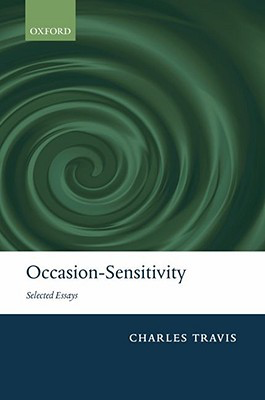
3:16: What’s the role of decomposition in understanding what thoughts are? You discuss two ways of decomposing, one Fregean, one you label Davidsonian don’t you? Can you explain the two ways and why if Frege’s view is right then (contra Wittgenstein) a creature – say a Martian or a lion – that might not decompose thoughts in a way we could would still be a thinker?
CT: The role of decomposition in understanding what thoughts are is basically this: a. The notion Thought (or Gedanke). This is to be the (ontologically) primary player in the business of being true (already separated out from that of holding true, thus from a thinker’s business. So it is, basically, a (determinate) truth-or-falsehood, the truth there is if true, the falsehood there is if false. It is a countable, and identified by just how it makes truth turn on (depend) on how things are. I say that it is ontologically prior, meaning by that that other players in the business of being true are to be defined in terms of it. b. Now for the notion decomposition . The basic idea is: Suppose you want to identify law-like relations between thoughts, ones which depend on truth being what it is. Then you need to identify features in a thought which recur in a range of thoughts, so that two thoughts can be the same in interesting respects. Suppose we think of a thought as identified by what it does: making truth depend as it does on how things are, or simply, representing things as being the way it does. Then we can conceive of an element in common to a given thought and others as a partial doing of what the whole thought thus does.
For example, if the thought is that Pia swims, then a partial doing of what it does is making truth turn on how Pia is (or what she does), which is also done in a whole range of other thoughts (for example, Pia is easily annoyed by Sid’s lethargy). A whole decomposition will be some assemblage of such partial doings whose joint doing just is the whole doing of what that whole thought does. Frege insists that a given whole thought is decomposable in many ways ( not generated by a syntax operating on proper thought-parts). But anyway, decompose the thought in any way you might and you are set up for identifying law-like relations it bears to other thoughts, e.g., one thought about Pia to other thoughts about Pia. So what we get from decomposition is basically a route to laws of being true which, as Frege sees it, is just what logic is. One thing Frege insists on about decompositions is that any decomposition of a thought must contain at least one element which is not a thought (thus a proper subthought), but in the same business as a thought, namely, the business of representing (something) as (something). Whereas a thought is in the business of being true (or false) punkt , so that any two thoughts, in this sense, represent the same thing as some way or other (namely, the way things are), a proper subthought of the kind just mentioned is in the business of truth-of, where different occurrences of a proper subthought may be in the business of different things (e.g., the difference between Pia swims and Sid swims). Here lies the beginnings of logic. Which, after all, is Frege’s first and most central business (proving that arithmetic is logic coming after that.)
3:16: Doesn’t that mean that thinking is essentially parochial - and if it is, how then do we get objectivity, how can we be certain that our thoughts really track truth? I guess this amounts to asking when would what we say be true and that leads us to occasion-sensitivity doesn’t it? Why does occasion sensitivity claim, and why does it make it difficult to get the answer? Chomsky and Austin helped you think about this didn’t they?
CT: On this I want only to say the following: Compare McDowell and Frege. In 1994 McDowell said: The only rational (i.e., justifying) relations we can recognise as such are relations between concepts, such as entailment. In 1882 Frege said: there is a tremendous fundamental difference between, on the one hand, relations between concepts, and on the other hand, relations between objects and concepts. One thing this means is that there is an important sense in which relations between concepts are logic’s business, but relations between objects and concepts (recall instancing ) are not. And this theme he continues in an undatable bit of Nachlass (17 Kernsätze zue Logic ) in which he says: There are two kinds of proof. One kind ‘justifies’ a claim (of truth) by tracing it back to grounds in other truths. The other kind does not work that way. (I think a good central example of this other kind is perceptual proof: You see Pia swimming in the surf, and such is proof for you that she is swimming in the surf. Note that there are no transitions between truths here. Frege does not say that this sort of proof isn’t a proof (as McDowell does, or once did).
But he does say that this sort of proof is not logic’s business. The reason is that the relation, e.g., between Pia being as she is (as she glides through the surf) and it being true that she is swimming in the surf isn’t law-governed in the way that relations between thoughts are. It couldn’t be. (This is something we learn when we think hard about what logic is (and what concepts are. It is a point easy for philosophers to miss, and highly important.) So another largely missed, but crucial point in Frege. And we can capture the idea here by saying that in this second domain (what I call the domain is truth-yielding) there is room throughout for the parochial. By contrast, we hope (though perhaps it isn’t so) that when we get to logic’s business we are talking about a phenomenon which must be shared in common by all rational beings—both humans and Douglas Adams’ dolphins, assuming that humans are rational. And if so, the governing laws (we may hope) are the same for all rational beings. Perhaps this is not so. But there is no reason to think it is so, in any case, when we move from relations between concepts (logic’s business) to relations between, so to speak (pardon the expression) the world and concepts (not logic’s business). I’m just beginning to unpack more and more of what lies in this idea. I hope I can keep writing long enough to do it. (It will be several years yet.)
3:16: Are laws of logic a special case of thought, the highest or most general truths, like mathematics – and how does this help us understand what Frege thinks the truths of logic turn on?
CT: One can say what you suggest here. They are special in that, since they are laws of being true, or of thought in general, they are topic-neutral. That is, their only topic is that which belongs to all truth-or-falsehood (or thinking truly or falsely) as such. Are they of highest generality? One can say that too. This suggests a certain picture of how logic works: One achieves progressively higher levels of generality by abstracting away from reference to particularities in thought by repeated applications of quantifiers (quantifying-in), which leaves us with universal thoughts with no topic-specific parts in them. (For example, they predicate nothing in particular of anything, but rather generalise over all predicating.) This is a picture one finds, for example, in Warren Goldfarb and in others influenced by Burt Dreben, and by others. I think there are things wrong with this picture, and it is not necessary to conceive of logic in this way. But I won’t discuss this now.
Does mathematics also have this generality? Well, some of it does. One could argue that some of it doesn’t. I think what we need to talk about here are things like Frege’s debate with Hilbert. But I’m not going to do that right now. (Partly because I haven’t done it myself thoroughly enough yet. I’m just an ex-Berkeley math student, influenced in (I take it) a Hilbertian way by what mathematics was then at Berkeley.
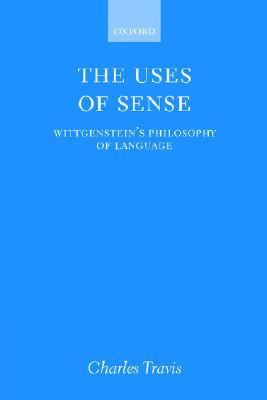
3:16: How did Wittgenstein’s ‘mesh’ idea (I think that’s your metaphor for his structure isn’t it?) try and answer the parochialism issues – and along the way answer Kant’s worry that he needed to validate the mesh? What’s of value in this Tractarian approach and why is it wrong to try and render the parochial benign in such a way – is this where Putnam is important?
CT: When you speak of Wittgenstein’s ‘mesh idea’ I take it that you’re thinking of a discussion in the 6s about the relation between logic and, for example, laws of physics. So the idea is: a ‘mesh’ (a mental ‘mesh’ if you like) may be placed (mentally) over, say, a white wall. The cells in the mesh may be numbered. A given cell is to be called either white or black, according to a certain rule (depending on whether what’s in that cell is predominately white or black (e.g., fly specks). A description of the wall can then be the conjunction of all the colours of the cells (these structured as they are in the mesh). That’s the general idea. Now in terms of the example, Wittgenstein tries to make a distinction between the rules for the use of words (here rules about what to say of particular cells in a mesh, and how to structure this into a description of the whole mesh. Roughly, the rules give meaning to the particular descriptions, which can then be merely empirically true or false. But the terms which appear in the rules can’t themselves be given content that way. They have to get their content from their distribution in the rules themselves, these holding merely by stipulation, or else maybe they could get their content from something outside the system entirely (an idea I believe Wittgenstein doesn’t think much of).
So there’s a general distinction running here: What’s true by stipulation isn’t liable to prove wrong, or at least not prove wrong, that is, in the light of experience. By contrast, there’s what proves true when we work according to the rules, for example, that a particular cell in a particular mesh, placed against a particular wall at a particular time is black, or again that it is white.
Wittgenstein then goes on to suggest that the laws of Newtonian mechanics are true by stipulation, and then if we choose to use Newtonian mechanics to describe the world, there are particular statements made according to the rules, for example, as to how fast a certain object accelerates or decelerates, after collision with another object of a certain mass (e.g, a rock and a windscreen). But, I think (I may be wrong here), while one might accept or reject Newtonian mechanics, there’s no such thing as accepting or rejecting logic. So here we have a case where there’s no such thing as being wrong. And also here we have a limit to parochiality. (Though there’s a pretty strong limit to it in Newtonian mechanics too.
The distinction here is between rules for use, by which words are given a sense. Then there might be something parochial about the sense thus given, but not anything parochial about the stipulations themselves (except that given people may decide to talk that way or not).
Imagine how wrong the comparison with Newtonian mechanics proves to be. (In 1922, 17 years afrer 1905.)
In some other languages, e.g., French or Dutch, there’s a verb (in French, bagatelliser). We don’t have it in English, but I wish we did. Because I think Tractarian Wittgenstein is bagatellising the phenomenon of parochiality. And also misestimating badly the power of stipulation. Here we have Tractarian Wittgenstein versus Putnam and Leibniz. And, bracketing issues of logic itself, I think Putnam and Leibniz are much closer to the truth. Frege, too, who is very concerned with the idea that you cannot define things into existence, and who thinks that if you are giving definitions of a term already in use, and you mean to be defining that for which it is already used (if perhaps imperfectly), you owe an argument that this is what you actually have achieved.
You don’t get rid of the parochial that cheaply. One might say: there’s nothing parochial about logic itself. Maybe that’s true. But logic itself leaves so much as exercise for the reader (so to speak).
Is the parochial consistent with objectivity? (Your next question, I think.) Well, the way I want to think of it is this: If we think of some ‘domain of the conceptual’, as it is independent of any thinker (with, for each concept, determinate facts as to by what it is/would be instanced, by what not), such a domain would be immensely rich, literally richer than we (or any thinker) could imagine. What’s parochial (insofar as thought is objective) is what choices a given species, or group, or whatever, makes from within this domain. Having made the choices, there are objective facts as to which of these ways things are, or when something would be any one of these ways. It may be a very complex story what these facts depend on. But there are non-parochial standards of objectivity which are either met or not by the applications made of the concepts chosen in any particular case. (As to what these objective standards are, I think that’s something Wittgenstein discusses in Investigations §136. But I’m not going through the details of that just now.
What I’ve omitted here are arguments for the view that the parochial runs much deeper than, e.g., Tractarian Wittgenstein is willing to allow. Sorry about that. But I’m glad you reminded me of the meshes, because I’m supposed to write something now on what my view of Wittgenstein is. (All condensed into one essay!) and what I call his bagatellising the parochial in the Tractatus (but not in the Investigations ) is something I mean to bring out.
And if there’s to be thought at all, there must be objectivity. We can’t have things to think truly or falsely unless there can be ways for things to be which (all going well) things either are or not. (Representing-as and there being such a thing as truth and falsehood come as a package, I argue, even if not all representing-as in fact is the one thing or the other. As to standards, well, what is the difference between agreement in opinion and agreement in recognising how things are ?
3:16: So how should we understand the idea that laws of logic are not held hostage by the parochial and why do you begin discussing this by starting with Leibniz and his understanding of innate knowledge being knowledge by design and thus having to be parochial (on the one hand) but also unlearnable and so not parochial (on the other)? Is oscillating between these two positions, seeing them as alternative but ok perspectives on ourselves, the way Frege thought we should go?
CT: This is an issue I’m still working on, and hope to write on more soon. Here is one contrast: There are (conceivably) different species of rational beings (martians, or dolphins, say. (Ref. to D. Adams)) There are not conceivably different species of human beings. Humans just are a species. If laws of logic are supposed to govern all thinking, then they govern all species of rational beings. (This may sound odd at first. That’s why, as I say, I have to write more on this soon.) ‘Rational being’ is (in some sense) normative: we philosophers study what one ought to be able to expect of a rational being: If not, then we refuse the title. And conformity to the laws of logic seems to be one such requirement. As said, this claim requires more justification than I’m giving it here. (For example, Davidson’s ‘The Very Idea of a Conceptual Scheme” will not do the job (in my opinion).) But writing about this again will have to wait its turn on the docket. One thing different about logic, I think, does come out in this way: Truth values (True and False) cannot be parameters in natural laws as, for example, distance or curvature, or other geometrical notions, can. The reason they cannot (I suggest) is that if they were, we would lose the principle I call (somewhere above) ‘identity under predication’ (‘over truth-or-falsehoods’). And that, arguably, loses us the notion true altogether.
3:16: Is how logic speaks like mathematics for Frege, or a calculus – and is that why its not a language as such but more a means for representing facts? And is that all he needs to show that Kant was wrong to think he had to validate his categories of thought (his ‘mesh’ I suppose)?
CT: A couple of comments to this. First, to be picky, any law of anything is something which holds (in nature). It’s a generality and that generality is instanced by particular cases of satisfaction of the conditions for the law to apply to something in particular. A logic is a theory, constructed by some logician or other. The theory may have (usually does in some sense) axioms or statements of laws. It’s for the theorist to make such statements, in whatever language he (she) thinks is appropriate. Often a logic makes use of something which, in some ways, looks like a syntax for a language, but actually generates in some sense ‘empty forms’. What’s generated then (understood as the theorist usually wants it to be) is a stock of logical forms (or ‘Vertreter’ for these), and it’s this that the laws of logic govern. (According to the theorist, of course.) As for Kant, one thing about Kant is a technical matter. He didn’t have an adequate general account of quantification. (Because no one did in his time.) Frege shows this by producing an adequate account.
But there’s also the question of Kant’s ‘categories’ (or Aristotle’s according to him). To me, these just look like a strange mixture of all sorts of different things. Some of them sound like Aristotelian logic (e.g, ‘unity’, ‘multiplicity’, ‘totality’. (I think that by ‘unity’ he means ‘Einzel ding’. But I don’t know that. ) And then he has as a logical relation ‘such things as (what looks sort of like) predication, but also such things as causality, or ’interaction’, (‘Wechselwirking’). I think it would be rare to find these called ‘logical relations’ today, and I think for good reason. But I don’t know if Frege really took it upon himself to criticise these qua a theory of categories. You just have to say more about what a ‘category’ is supposed to do. (Generally, I suppose he didn’t like the idea insofar as he supposes that a properly defined (say, one-place) predicate is either true or false of every object. But what I think of that is just, at least in present context, ‘Let’s not go there.’
3:16: You link Chomsky and McDowell in their attitudes towards the parochial – can you sketch the connection and whether theirs has been a positive or negative approach to the parochial – and do you think contemporary philosophy in general has got to grips with the Fregean approach to the parochial?
CT: Chomsky appeals to a number of Fregean ideas in setting out his view of how to treat the topic of language scientifically. But he’s pretty straightforwardly committed to the idea that what he’s studying is a human capacity, hence something parochial. So there may be universal principles of grammar in his sense. These would be laws governing any human language. (If some such law were not that, it would just be a condition on rationality full stop. But it would be hard for anyone to argue that. And (anyway back when I was studying Chomsky carefully) he never made any such claim.
McDowell. Well, he’s very concerned to distinguish us from (as it was once put) ‘mere brutes’. And he has some things to say about rationality. (The best here I think is his ‘Two Forms of Rationality’. I’m not sure exactly what he thinks about the parochial. There’s a problem here. Philosophers rarely really mean to talk just about human beings, even if sometimes it seems that’s what they would have to be doing. I mean, if it’s really only about a species (what they have to say, I mean), one would suppose that we need some sort of empirical justification for it. But also of course, philosophers don’t (really) do such things. So I think that in McDowell’s case, he should be read as speaking of rational beings. At least most of the time. Maybe this could be questioned when the topic is moral theory.
I think what’s in common to McDowell and Chomsky is probably only that both think that a distinction between the parochial and the universal needs to be made. I think McDowell would go along with that.
3:16: Wittgenstein’s Philosophical Investigations responds to Frege and departs from Frege in some respects – one of the departures led to his notion of language games didn’t it? So how does Wittgenstein depart from Frege and do you think his innovations valid or was Frege not properly understood by Wittgenstein and not in need of the innovations?
CT: I think Wittgenstein’s notion of a language game may have been inspired by Frege. This doesn’t make his notion a Fregean one. But— In 1903, in the second volume of Grundgesetze, Frege has a long attack on people he calls ‘proponents of ’formal’ arithmetic’. He says: Arithmetic has to have applications. (His example is in astronomy. But never mind.) But it’s thoughts which have applications in the relevant sense. What Frege has in mind by ‘applications’ here is pretty much what Wittgenstein has in mind by language games.
The thing you always have to keep in mind about Frege is that he’s studying only a very small part of the general phenomenon of people thinking things. And this comes out in his distinction between, on the one hand, relations between concepts, and on the other relations between objects and concepts.
I also think there’s one other parallel between what Frege is doing and what Wittgenstein is. When Frege detaches being true from holding true, he’s left with nothing that could ask for enabling explanation. And that’s fine with Wittgenstein too. And when Wittgenstein speaks of there being no such thing as a discovery in philosophy, that’s what he means too. Wittgenstein is interested in Frege’s ‘holding true’, but from the point of view of ‘grammar’, and not from a point of view which would seem to make room for ‘discoveries’, i.e., answers to ‘How could they do that?’ questions.
3:16: And finally, are there five books you can recommend for the readers here at 3:16 that would take us further into your philosophical world?
CT: In recent philosophy, the writers who are most useful to me (besides Wittgenstein) are Austin and Putnam.
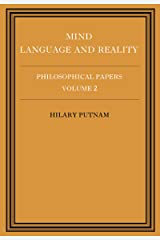
But for Putnam, what’s most interesting are his Leibnizian roots. so I guess probably his second collection of essays. He’s written a number of books. But I think you can’t really understand what he’s doing unless you read some of those early essays on meaning and philosophy of science, and related subjects.
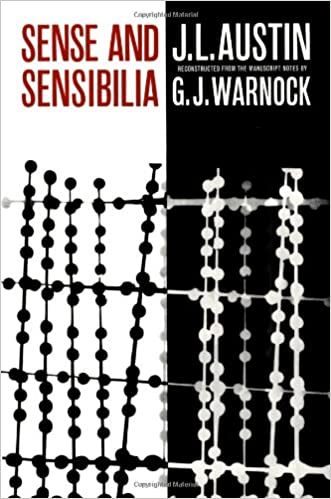
It’s easier to say for Austin. I’d say Sense and Sensibilia.
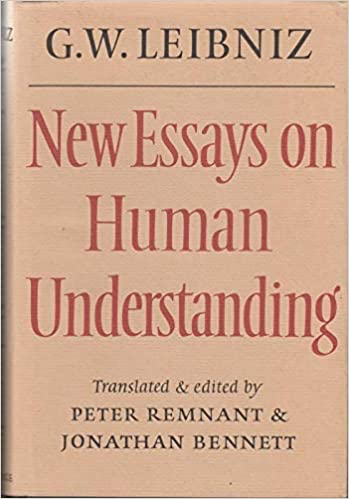
And then, in history of philosophy there’s Leibniz’ Nouveaux Essais (sur l’entendement). It’s book 4 (I think) where he talks about definitions, that is the most fun and the most use too.
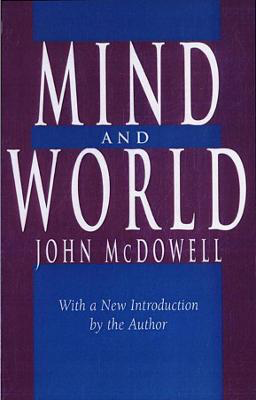
I think I said that I think John McDowell is among the best, possibly the best, living philosopher. But I don’t particularly advise reading Mind and World. It seems to me that his essays on ethics, knowledge, philosophy of mind are his best thing. If just one book of his, then, well, it’s a bit hard to know which of the first two collections of essays to choose.
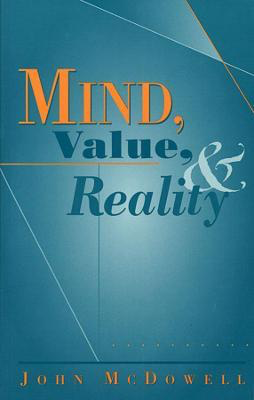
There’s Mind, Value and Reality, which contains those essays on moral theory which are really important and good.
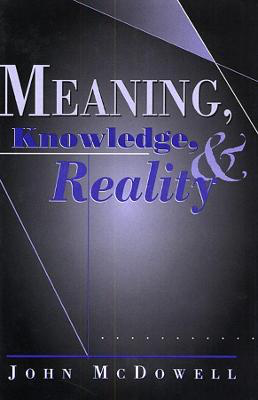
And then there’s Meaning and Knowledge and Reality, which has two great essays on knowledge.
I don’t know. I think I”m not very good at recommending books. Or reading them either.
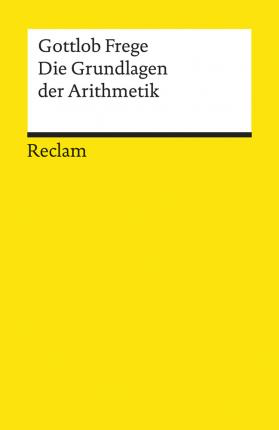
I guess that maybe an entertaining book is Frege’s 1884 book, Grundlagen der Arithmetik. This is meant to be a popular book—not a best seller, of course. And it has some nice simple ways of making one think, in this case mostly about what numbers might be. That may sound sort of boring. But I think it really isn’t. Finally, I guess this isn’t really philosophy. Well, but maybe it really is.
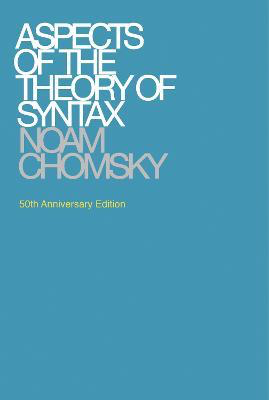
People should read Chomsky. (I’m talking about Chomsky the linguist of course.) Not necessarily his latest book. I think his 1965 book, Aspects of the Theory of Syntax had a big influence on my method in philosophy. Of course, well, Chomsky had a very special manner (then) both in writing and in lecturing. At that time, in linguistics, philosophy and psychology, it was Skinner, Quine and Bloomfield. And Chomsky really was a breath of fresh air. It may be hard to appreciate that now, with a sort of new (self-styled) cultural avant-garde around. But you should read it and try to appreciate it. I’m going on and on. But it was Chomsky the iconoclast who made me read Freud.
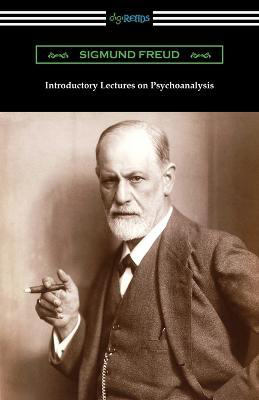
And while we’re at it, the Introductory Lectures on Psychoanalysis are very nice reading. These are just at the end (or nearly the end) of World Way 1, and it’s amazing what a blossoming of classic works there was in just the years 1917-1918. There was also Russell’s Lectures on Logical Atomism. These I can’t recommend as philosophy. I mean they’re very clever, and entertaining. But really. Still, if you just want a good read, this, too, was a milestone in philosophy.
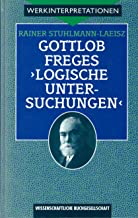
And of course Frege’s essay, “Der Gedanke”. OK then. The last book. Frege wrote (and published) three essays around 1918-1919 and 1923: “Der Gedanke”, “Die Verneinung” and “Gedankengefüge” (compound thoughts). I think the three are pubished as a book called “Logische Untersuchungen”. Well, that’s the real philosophy from those years. And actually not so hard to read. Philosophically much better than the Russell, which is still fun, though.
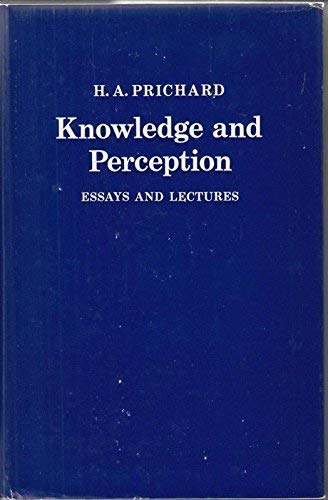
One more thing. But a grain of salt. My wife (not a native English speaker) refuses to read it, I think because she things the author is too English. The author is an Oxford professor (from the forties and fifties), H. A. Prichard. Don’t ask me what the initials stand for. He was, I’m told, a true eccentric. But he gave a series of lectures for Oxford undergraduates in those days, and they are published in his collected works (which is a thin book). The (long) essay on Descartes is, I think, what inspired Austin who, in turn, really inspired me. But take a warning from my wife. She’s not that fond of Austin either. You have to be English I guess—or almost, because I’m not—to appreciate Austin’s humour. I suppose Wodehouse might do the trick, though.
As postscript, philosophically speaking, I think McDowell is my most worthy opponent (by far). That's why I criticise him so much. He's worth it. I also think he's among the very best living philosophers. I think someone who's already in my philosophical world would recognise this. I just don't want to create a misimpression. So by all means read Mind and World if you like. It's an interesting and provocative book. But (this I would say to McDowell himself) if you are just starting to work your way into the sorts of problems McDowell and I discuss, and, in particular, if you are just starting to work your way into McDowell's work itself, I suggest that this isn't the place to start. Why not some of his magnificient earlier essays?

ABOUT THE INTERVIEWER
Richard Marshall is biding his time.
Buy his second book here or his first book here to keep him biding!
End Time series: the themes
Huw Price's Flickering Shadows series.
Steven DeLay's Finding meaning series
Josef Mitterer's The Beyond of Philosophy serialised
NEW: Art from 3:16am Exhibition - details here